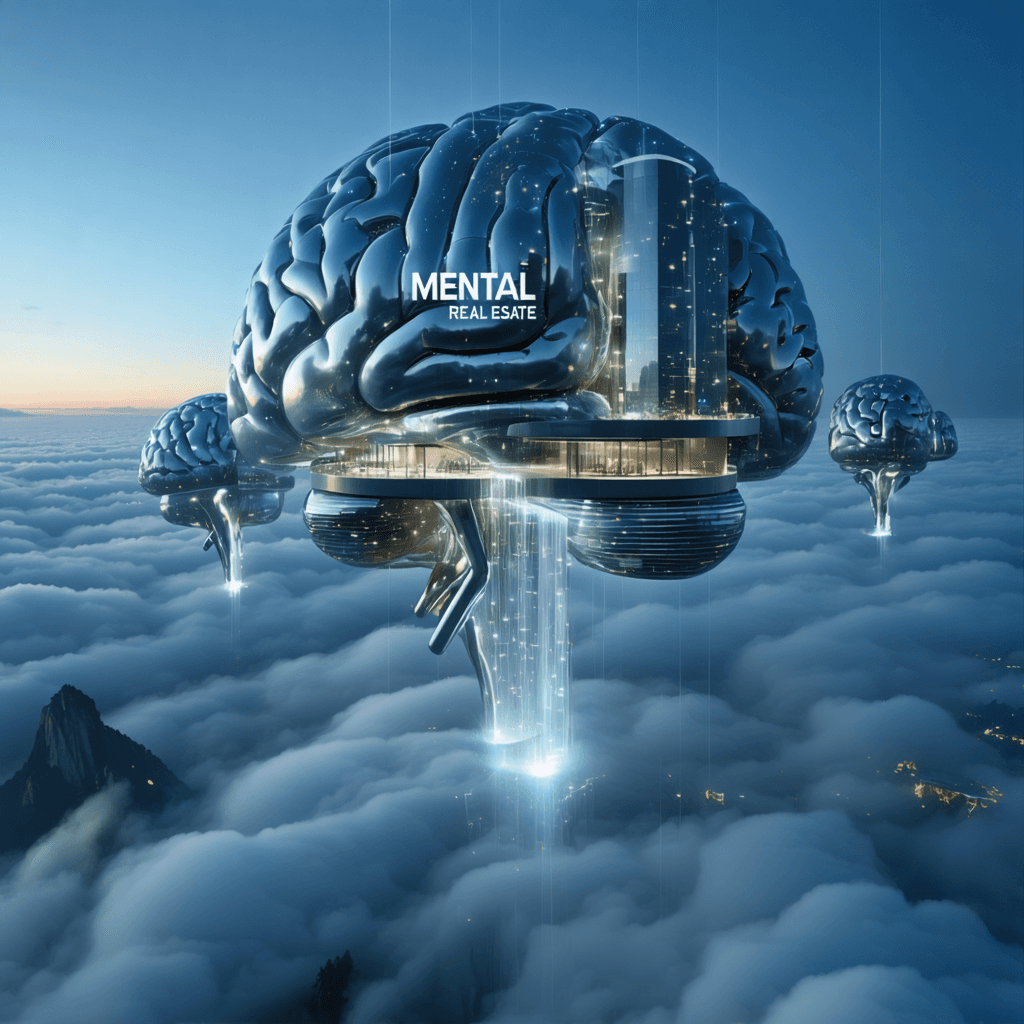Mastering Mental Real Estate: The Hidden Art of Streamlining Information Overload
In today's hyperconnected world, our minds are constantly bombarded with an overwhelming amount of information. From endless social media feeds to work emails, news updates, and digital notifications, managing this constant flow of data has become a crucial skill. Let's explore effective strategies for mastering your mental real estate and transforming information overload into organized, actionable knowledge.
Understanding Mental Real Estate
Think of your mind as prime real estate in a bustling city. Just as urban planners carefully design spaces for maximum efficiency, we must deliberately organize our mental landscape to optimize our cognitive resources. Mental real estate refers to our brain's capacity to process, store, and retrieve information effectively.
The Cost of Cognitive Clutter
Research shows that the average person consumes about 74GB of information daily – equivalent to watching 16 movies. This constant influx of data can lead to:
- Decreased productivity
- Impaired decision-making
- Increased stress levels
- Reduced creativity
- Poor memory retention
Strategic Approaches to Information Management
1. Digital Decluttering
Start by implementing a systematic approach to managing digital information:
- Inbox Zero Philosophy: Process emails immediately using the 2-minute rule – if it takes less than two minutes, do it now
- Content Curation: Use tools like Pocket or Instapaper to save valuable content for later reading
- Notification Management: Turn off non-essential notifications and batch-process updates
2. The Information Diet
Just as we carefully choose what we eat, we should be selective about our information consumption:
- Quality Over Quantity: Focus on high-value, reliable sources
- Time-Boxing: Allocate specific times for consuming different types of information
- Information Fasting: Schedule regular digital detoxes to reset your mental space
3. Knowledge Processing Systems
Implement structured systems to process and retain important information:
The PARA Method
- Projects: Current active endeavors
- Areas: Ongoing responsibilities
- Resources: Reference materials
- Archives: Completed or inactive items
The Second Brain Technique
- Capture important information immediately
- Organize it into logical categories
- Distill key insights
- Express ideas through creation and sharing
Advanced Techniques for Mental Organization
1. Mind Mapping
Create visual representations of information to:
- Understand complex concepts
- Identify connections between ideas
- Enhance memory retention
- Facilitate creative problem-solving
2. The Zettelkasten Method
This powerful note-taking system helps you:
- Create atomic notes for individual concepts
- Establish meaningful connections between ideas
- Build a personal knowledge database
- Generate new insights through association
Practical Implementation Strategies
Daily Practices
- Morning Brain Dump: Start each day by clearing your mind of lingering thoughts
- Information Triage: Categorize incoming information as:
- Urgent and important
- Important but not urgent
- Urgent but not important
- Neither urgent nor important
Weekly Reviews
- Assess information consumption patterns
- Archive processed information
- Update knowledge management systems
- Plan upcoming information needs
Technology as an Ally
Leverage technology to enhance your mental organization:
- Note-taking Apps: Evernote, Notion, or Roam Research
- Task Management: Todoist or Trello
- Knowledge Bases: Obsidian or LogSeq
- Focus Tools: Forest or Freedom
Building Sustainable Habits
Success in managing mental real estate requires consistent habits:
- Start Small: Begin with one system or technique
- Track Progress: Monitor improvements in productivity and clarity
- Adjust Methods: Modify approaches based on personal effectiveness
- Stay Consistent: Maintain regular review and organization sessions
The Impact on Professional Success
Mastering mental real estate leads to:
- Enhanced decision-making capabilities
- Improved problem-solving skills
- Better work-life balance
- Increased professional value
- Greater innovation potential
Future-Proofing Your Mental Space
As information continues to multiply, developing robust mental organization systems becomes increasingly crucial. Consider:
- Regular system audits and updates
- Adaptation to new technologies
- Continuous learning and refinement
- Building resilience against information overload
Measuring Success
Track your progress through:
- Productivity metrics
- Stress levels
- Decision-making speed
- Creative output
- Professional growth
The ability to effectively manage mental real estate is becoming a defining skill in the modern world. By implementing these strategies and consistently refining your approach, you can transform information overload from a challenge into a competitive advantage.
Ready to take your mental organization skills to the next level? Explore our comprehensive courses and resources at 01TEK. Our expert-designed programs will help you master these techniques and develop a personalized system that works for your unique needs. Visit 01TEK's Learning Hub today and start your journey toward optimal mental organization.
Transform your mind from a cluttered space into a well-organized, productive powerhouse. Your future self will thank you.
Failing to plan is planning to fail.
Chinese Proverb



